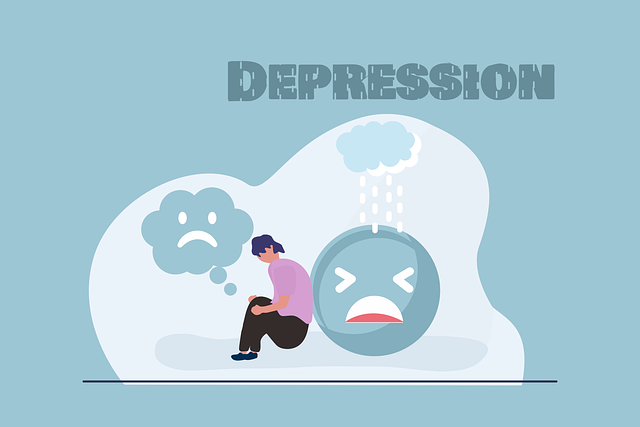Trauma from events like accidents or disasters can significantly impact mental health, with specialized services like Lakewood's ADD-ADHD evaluations and therapy playing a vital role in recovery. These services address unique mental challenges linked to trauma, incorporating cultural sensitivity for safe healing spaces. By fostering resilience, self-esteem improvement, and coping skills through comprehensive assessments and personalized treatment plans, Lakewood's approach promotes holistic healing. Community education and training for caregivers further support individuals navigating trauma and ADD/ADHD symptoms.
Trauma support services are vital in helping individuals heal from the profound effects of traumatic experiences. This article explores key aspects of trauma care, including an in-depth look at the impact of trauma and its relationship with Attention Deficit Disorder (ADD) and ADHD. We delve into the effective provision of services, focusing on Lakewood ADD-ADHD evaluations and therapy as a foundational approach. Best practices for empathic care are also highlighted, offering valuable insights for professionals aiming to support traumatized individuals.
- Understanding Trauma and Its Impact
- The Role of Lakewood ADD-ADHD Evaluations and Therapy in Support
- Creating an Effective Trauma Support Service Framework
- Best Practices for Providing Empathic Care to Traumatized Individuals
Understanding Trauma and Its Impact

Trauma is a profound and complex experience that can have lasting effects on an individual’s mental health and overall well-being. It stems from various sources, including severe accidents, violent incidents, natural disasters, or prolonged exposure to distressing events. Understanding trauma is the first step in providing effective support. When left unaddressed, traumatic experiences can lead to a range of issues such as anxiety, depression, post-traumatic stress disorder (PTSD), and substance abuse.
In Lakewood, access to specialized services like ADD-ADHD evaluations and therapy plays a vital role in assisting individuals who have experienced trauma. These services cater to the unique needs of those struggling with mental health challenges, often stemming from traumatic events. By incorporating cultural sensitivity into mental healthcare practice, therapists can create safe spaces for clients to process their experiences. This approach ensures that self-esteem improvement becomes a feasible goal, fostering resilience and healing.
The Role of Lakewood ADD-ADHD Evaluations and Therapy in Support

Lakewood ADD-ADHD Evaluations and Therapy play a pivotal role in trauma support services. These comprehensive assessments help individuals understand their unique challenges related to Attention Deficit Disorder (ADD) or Attention Deficit Hyperactivity Disorder (ADHD), often co-occurring with traumatic experiences. By providing tailored therapy, healthcare professionals can address both the mental health aspects of trauma and the specific symptoms associated with ADD/ADHD. This dual approach is crucial in fostering healing and enhancing coping skills development.
The process involves meticulous evaluation, considering factors like behavioral patterns, emotional responses, and cognitive abilities. Once diagnosed, a personalized treatment plan is devised, incorporating evidence-based practices to improve focus, impulse control, and hyperactivity—common symptoms of ADD/ADHD. Integrating these strategies into trauma support ensures that individuals not only learn coping skills for their immediate challenges but also develop resilience for long-term mental health awareness and well-being. Public awareness campaigns development can further educate communities about the link between trauma and ADD/ADHD, reducing stigma and encouraging seeking professional help.
Creating an Effective Trauma Support Service Framework

Creating an effective trauma support service framework requires a holistic approach that integrates specialized services like Lakewood ADD-ADHD evaluations and therapy with broader compassion cultivation practices. The first step is to ensure that all staff members are trained in crisis intervention guidance, enabling them to provide immediate and compassionate assistance to individuals experiencing trauma. This involves fostering an environment where positive thinking is encouraged as a tool for recovery, helping individuals process their experiences and develop coping mechanisms.
The framework should also incorporate regular training sessions on various trauma-informed care techniques, ensuring that the support services remain up-to-date with the latest research. By integrating these practices, organizations can offer comprehensive care tailored to each individual’s unique needs, fostering a supportive atmosphere that promotes healing and growth.
Best Practices for Providing Empathic Care to Traumatized Individuals

When offering empathic care to individuals who have experienced trauma, it’s essential to prioritize a nurturing and supportive environment. This involves active listening, where caregivers fully attend to the individual’s narrative without interruption or judgment. Traumatized people often need reassurance that their feelings are valid and understood; thus, reflecting back their emotions in a non-judgmental manner can be immensely therapeutic. The integration of self-care practices for caregivers is another best practice, as burnout can hinder their ability to provide consistent support.
Implementing community outreach programs can augment traditional therapy methods, such as Lakewood ADD-ADHD evaluations and therapy sessions, by fostering connections and a sense of belonging among individuals dealing with trauma. Social skills training can also be beneficial, equipping clients with tools to navigate social interactions and build supportive networks. These strategies collectively contribute to holistic healing, addressing not just the symptoms but also the underlying causes of trauma.
In light of the profound impact of trauma on individuals and communities, establishing robust trauma support services is paramount. By integrating knowledge about trauma’s effects with evidence-based practices like Lakewood ADD-ADHD evaluations and therapy, we can create transformative frameworks. These frameworks, coupled with empathic care, ensure that traumatized persons receive comprehensive, effective, and compassionate support. This approach not only facilitates healing but also empowers individuals to reclaim their lives and rebuild resilience in the face of adversity.










